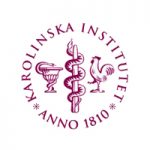项目介绍
To be a doctoral student means to devote oneself to a research project under supervision of experienced researchers and following an individual study plan. For a doctoral degree, the equivalent of four years of full-time doctoral education is required.
We are seeking a highly motivated PhD student to join two leading psychiatric research centers, KI Psychiatric Genomics Institute and Centre for Eating Disorders Innovation at the Department of Medical Epidemiology and Biostatistics. The student will conduct research on the comorbidity of major depression and eating disorders to better understand shared mechanisms and implications for treatment. This four-year doctoral education is fully funded by the prestigious grants from the European Research Council (ERC) and the KI internal doctoral funding program (KID).
The research group
The KI Psychiatric Genomics Institute (KI-PGI) is a systematic program established to evaluate the
epidemiological, molecular, and cellular effects of genetic risk loci for psychiatric disorders. The director of KI-PGI is Principal Researcher Lu Yi and co-director is Professor Patrick Sullivan. For more information about KI-PGI projects, please visit https://ki.se/en/meb/ki-psychiatric-genomics-institute. The Centre for Eating Disorders Innovation (CEDI) is dedicated to applying novel and emerging methodologies and technologies to elucidate causal mechanisms underlying eating disorders. The research group at CEDI is directed by Professor Cynthia Bulik. More information about CEDI projects, please visit https://ki.se/en/meb/research/cedi-centre-for-eating-disorders-innovation.
Both research centers are located at the Department of Medical Epidemiology and Biostatistics. The department conducts research in epidemiology and biostatistics across a broad range of areas within biomedical science. The department is among the largest of its type in Europe and has especially strong research profiles in psychiatric, cancer, reproductive, pediatric, pharmaco-, genetic, and geriatric epidemiology, eating disorders, precision medicine, and biostatistics. The department is situated at campus Solna. Further information can be found at http://ki.se/en/meb.
The doctoral student project and the duties of the doctoral student
Major depressive disorder (MDD) and eating disorders (ED) are debilitating mental health conditions that often co-occur, significantly complicating diagnosis, treatment, and outcomes for affected individuals. It underscores the urgent need for a comprehensive understanding of the underlying mechanisms that drive this relationship. By elucidating these mechanisms, we can develop more effective interventions targeting shared pathways and addressing the complex interplay between these disorders.
The mechanisms underlying the MDD-ED comorbidity are likely multifaceted, involving a combination of biological, psychological, and social factors. Therefore, the overall aim of this PhD program is to advance our understanding of these mechanisms by systematically testing hypotheses related to shared psychosocial and biological factors, potential casual links between the two disorders, and the implication of causal links for guiding treatment.
What do we offer?
A creative and inspiring environment full of expertise and curiosity. Karolinska Institutet is one of the world’s leading medical universities. Our vision is to pursue the development of knowledge about life and to promote a better health for all. At Karolinska Institutet, we conduct successful medical research and hold the largest range of medical education in Sweden. As a doctoral student you are offered an individual research project, a well-educated supervisor, a vast range of elective courses and the opportunity to work in a leading research group. Karolinska Institutet collaborates with prominent universities from all around the world, which ensures opportunities for international exchanges. You will be employed on a doctoral studentship which means that you receive a contractual salary. Employees also have access to our modern gym for free and receive reimbursements for medical care.
Choose to work at KI-Ten reasons why
Career support for doctoral students
International staff
Eligibility requirements for doctoral education
In order to participate in the selection for a doctoral position, you must meet the following general (A) and specific (B) eligibility requirements at latest by the application deadline.
It is your responsibility to certify eligibility by following the instructions on the web page Entry requirements (eligibility) for doctoral education.
A) General eligibility requirementYou meet the general eligibility requirement for doctoral/third-cycle/PhD education if you:
- have been awarded a second-cycle/advanced/master qualification (i.e. master degree), or
- have satisfied the requirements for courses comprising at least 240 credits of which at least 60 credits were awarded in the advanced/second-cycle/master level, or
- have acquired substantially equivalent knowledge in some other way in Sweden or abroad.*
Follow the instructions on the web page Entry requirements (eligibility) for doctoral education.
*If you claim equivalent knowledge, follow the instructions on the web page Assessing equivalent knowledge for general eligibility for doctoral education.
B) Specific eligibility requirement
You meet the specific eligibility requirement for doctoral/third-cycle/PhD education if you:
– Show proficiency in English equivalent to the course English B/English 6 at Swedish upper secondary school.
Follow the instructions on the web page English language requirements for doctoral education.
Verification of your documents Karolinska Institutet checks the authenticity of your documents. Karolinska Institutet reserves the right to revoke admission if supporting documents are discovered to be fraudulent. Submission of false documents is a violation of Swedish law and is considered grounds for legal action.
(A) and (B) can only be certified by the documentation requirement for doctoral education.
Skills and personal qualities
Qualifications:
- The applicant should have a master’s degree in genetics, statistics, mathematics, public health epidemiology, psychology, health informatics or a related quantitative discipline, and have a strong interest in psychiatric research.
- The applicant should have documented experience in conducting research using large-scale epidemiological or genomic data.
- The applicant should have advanced skills in statistical analyses, with programming skill in R or similar languages.
- Excellent oral and written communication skills in English are required, along with ample experience with scientific writing (e.g., first or co-author in published articles).
Merits:
- Having experience in psychiatric research especially depression or eating disorders is a strong merit.
- Having basic skills in genomic analysis is a strong merit, with knowledge of genome-wide association studies and related statistical genetic methods (e.g., estimation of SNP-based heritability, genetic correlations, and Mendelian randomization).
- The applicant should possess good organizational skills and be able to multitask effectively.
- The projects are carried out in an interdisciplinary environment that involves local and international collaborations. Therefore, the candidate should have excellent interpersonal and communication skills and enjoy working in a team.
Terms and conditions
The doctoral student will be employed on a doctoral studentship maximum 4 years full-time.
联系方式
电话: 08-524 800 00相关项目推荐
KD博士实时收录全球顶尖院校的博士项目,总有一个项目等着你!




